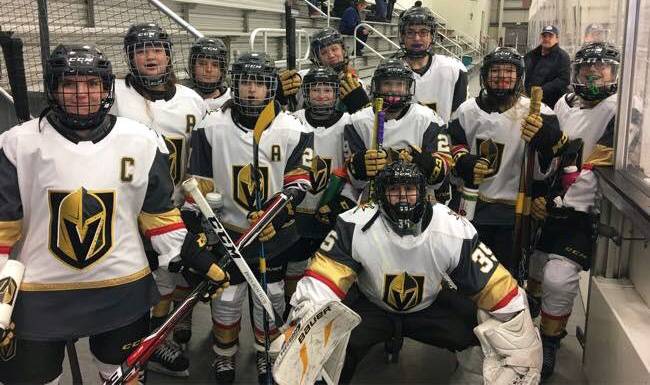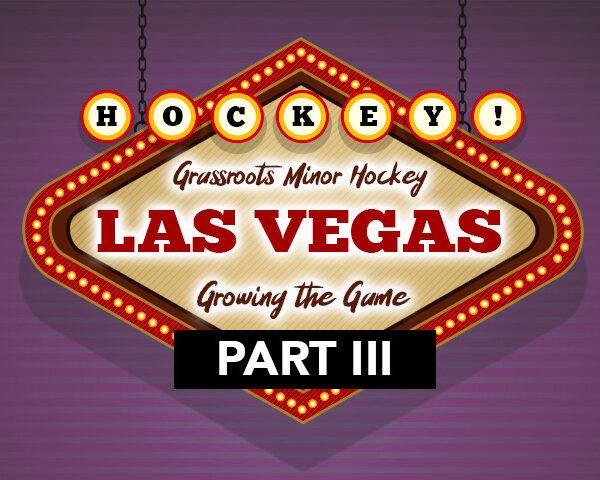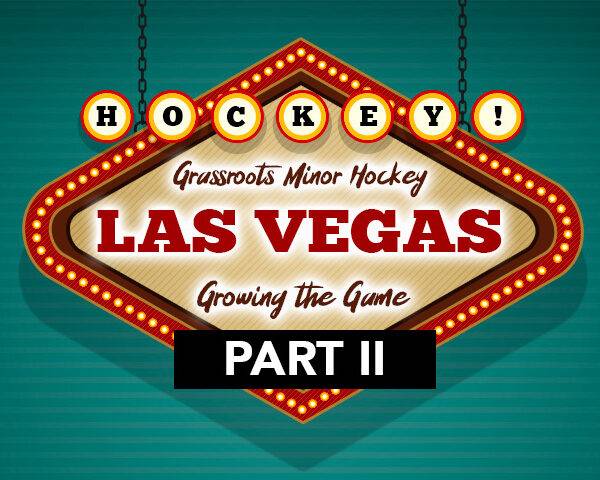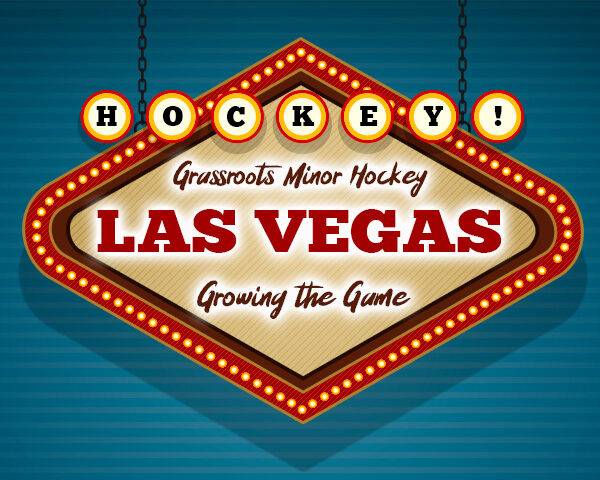Part 3 in our series on minor hockey in Las Vegas
There was instant karma between the Vegas Golden Knights and their fanbase from the moment they launched their inaugural NHL campaign during the 2017-18 season.
The Golden Knights are doing their utmost to create that passion for the game at the grassroots level. When it came to youth hockey, the Vegas franchise also hit the ground running, setting out to be a success story in that environment as well.
It all starts with the Vegas Golden Knights Skating Academy, which is basically an all-comers tutorial on the basics of working the blades on ice. Whether they’re interested in hockey or figure skating, all are welcome to come and learn. There’s also no age restrictions. Adults are invited to join their kids in learning the fundamentals of skating.
The next step for the younger graduates of the skating academy interested in pursuing hockey is the learn to play program. An NHL-sponsored program, learn to play is for kids ages 5-9 to begin to develop the skills required to play hockey — stickhandling, passing and shooting.
“Having the learn to skate going into the NHL learn to play and then into the little mite program is substantial,” said former NHL goalie Darren Eliot, who serves as Vice President of Hockey Programming and Facility Operations for the Golden Knights. All participants in the learn to play program must first earn their learn to skate certificate.
Moving on, the Lil’ Knights cross-ice program introduces these kids to actual hockey competition and helps them to understand basic hockey strategies and concepts. It’s the next step toward preparation for house-league competition. Participation in the programs ranges between 240-300 kids.
“And we have good sponsorship outside of that,” Eliot said. The D Las Vegas Hotel Casino has sponsored the entire Lil’ Knights program from Day 1. Thanks to that generosity, students are only responsible for paying a registration fee. That covers jerseys, training aids, and coaching support.
“The Stevens brothers (D Las Vegas Casino Hotel co-owners Derek and Greg Stevens), they’re from Michigan,” Eliot said. “That’s their program, the little mites program. They sponsor that annually and with that sponsorship, it’s just been fantastic with the Golden Knights’ popularity.”
All of the coaches teaching the program are USA Hockey certified. The Lil’ Knights program follows the USA Hockey’s American Development Model, which is designed to help all individuals realize their athletic potential and utilize sport as a path toward an active and healthy lifestyle.

“They’re learning offensive and defensive strategies, gap control, things to do with and away from the puck.”
“Kids get a chance to learn drills, they start practicing things in small-area games,” Matt Flynn, the Golden Knights’ senior manager for youth hockey development, told USA Hockey. “They’re learning offensive and defensive strategies, gap control, things to do with and away from the puck.”
Once acclimatized to the game, kids are directed toward house-league play, with the option of pursuing a higher level of hockey through the Vegas Jr. Golden Knights travel hockey program that fields both boys and girls teams.
“We basically build them into becoming good teammates,” Flynn said. “Then, they go into the house league.”
Looking to take hockey teaching to an even higher level in this non-traditional hockey market, Flynn approached middle schools across the Clark County, Nevada area to include hockey in their physical education programs. They supply the gear and educate the phys ed teachers who are unfamiliar with hockey in the ways of the game.
It isn’t just puckhandling and edgework that the Golden Knights seek to instil in their young proteges.
“We try to intermix life skills as much as possible,” Flynn told NHL.com. “You can have coaches, but as a young boy or girl, you need to be coachable. You need to be able to listen and respect your elders and know that someone is trying to help you.
“We’re teaching things like eye contact, a firm handshake and general life skills about working as a team. We try to mix all of that in.”
The Golden Knights have built a youth hockey program from the ground up, starting with Learn to Skate through to boys and girls rep teams.
Las Vegas minor hockey has grown tremendously since the Golden Knights arrived thanks to the NHL club’s investment in building new rinks in Nevada.
Las Vegas minor hockey has grown tremendously since the Golden Knights arrived and began to build a strong grassroots youth hockey program.
The post Golden Knights’ Youth Hockey is for Everyone appeared first on Elite Level Hockey.










